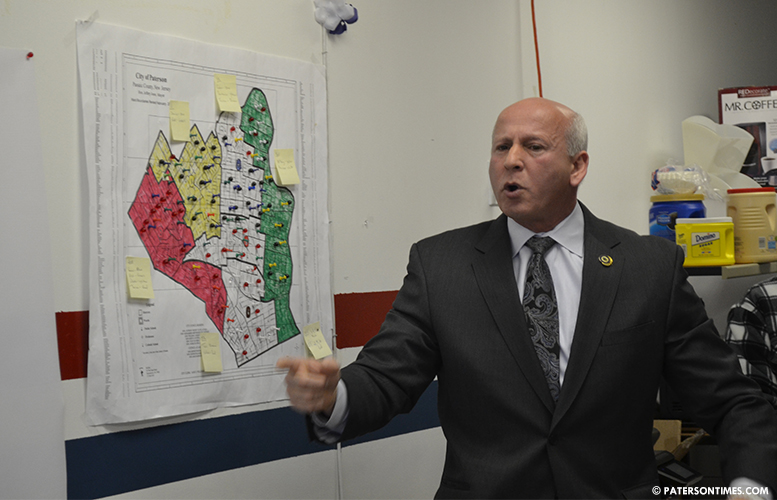The city’s attempt to recover some of the legal fees associated with an unsuccessful federal lawsuit filed by former councilman Aslon Goow came to naught last week after a judge dismissed three motions filed by three different law firms that defended city officials in the case, according to court records.
Judge Jose Linares of the United States Court for District of New Jersey denied the lawyers’ request for the reimbursement of legal fees incurred in the defense of municipal officials. The lawyers in their motion argued that the former 2nd Ward councilman’s lawsuit was frivolous, and therefore Goow ought to cover the city’s legal costs.
In their attempt to recoup legal fees for the city, the lawyers argued that Goow filed the lawsuit for political reasons. Linares dismissed that argument writing in his opinion on Thursday, “that Goow brought this action against” the city “and testified in other actions against the City for political reasons—is not a proper basis for the contention that they are entitled to attorney’s fees.”
The three law firms sought a combined $503,101. Dwyer Connell and Lisbona of Fairfiel which represented former police chief James Wittig and police lieutenant Patrick Papagni sought $207,998; Stone Law Group of Warren which defended captain Troy Oswald for his role as head of police Internal Affairs Unit sought $156,764; and Bridgewater lawyer Gary Spagnola, who defended mayor Jose “Joey” Torres, sought $138,339.
In their second argument, the lawyers asserted that Goow’s “frivolous and unreasonable conduct is evident by his refusal to engage in meaningful settlement negotiations during the litigation of this matter.”
Goow’s suit stemmed from a combination of a speeding ticket the city issued after the councilman, who is also a special police officer in Haledon, chased two suspects who had burglarized his neighbor’s vehicle on December 24th, 2006 and the police investigation that followed where Oswald, head of the police Internal Affairs Unit at the time, dug into the councilman’s past uncovering expunged criminal records from Goow’s teenage years.
“In the early morning hours of December 24, 2006, while at his home in the City of Paterson, Goow was stirred from his sleep by a noise outside which he believed was caused by two individuals attempting to steal his neighbor’s vehicle,” according to court records. “Goow immediately got in his vehicle, which was equipped with a police radio and emergency lights, and began pursuing the two individuals through the streets of Paterson.”
Oswald uncovered “documents [that] indicated that Goow had been arrested and/or convicted more than 15 times, had served time in the Passaic County jail, and had submitted two applications for expungement, both of which were granted.”
Oswald directed his findings to the Passaic County Prosecutor’s Office which declined to get involved, according to court records. In December 2008, Goow filed his suit against the city alleging his constitutional rights – 4th, 5th, and 14th Amendments rights – were violated during Oswald’s investigation.
Goow’s lawyer initially put forward a settlement amount of $2.5 million. The city balked at the amount. Goow offered to settle for $150,000, but the city refused, offering to settle for $50,000. The councilman rejected the smaller amount instead suggesting $250,000. In 2013, court meditators came to suggest $50,000 as a reasonable settlement amount, Goow refused.
The judge dismissed the lawyers second argument stating that it “is off the mark.” The judge wrote: “The issue at bar is whether Goow’s civil ‘action was frivolous, unreasonable or without foundation’ and not whether Goow’s conduct during attempts to settle his action met that standard.”
In a third argument, the lawyers cited that Goow’s emendation of the original complaint demonstrates the frivolousness of his suit. Linares, the judge, dismissed that argument stating it “is unsupported and unpersuasive.” The judge wrote: “Goow’s attempt to amend his Complaint does not necessarily make the claims set forth therein frivolous.”
Linares wrote concluding his legal opinion, the lawyers “have failed to convince this court that it should exercise its discretion in their favor in this particular case and grant them attorney’s fees.”
